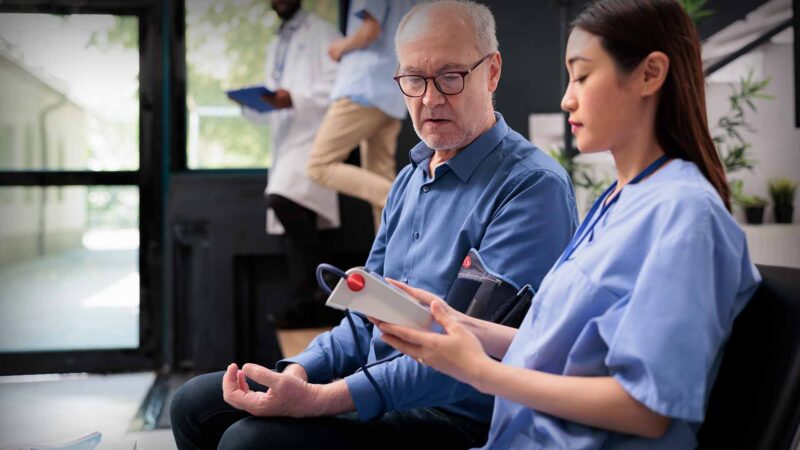IMPERATIVE NEED TO IMPROVE OUTCOMES FOR WOMEN DIAGNOSED WITH OVARIAN CANCER. ANZGOG Chair gives stark assessment on late diagnosis, limited treatment options and significantly low survival rates
With
Professor Clare Scott, Chair
Australia New Zealand Gynaecological Oncology Group (ANZGOG) &
Clinician Scientist
WEHI The Walter and Eliza Hall Institute of Medical Research &
Medical Oncologist, Peter MacCallum Cancer Centre, The Royal Women’s Hospital and The Royal Melbourne Hospital
Australian Health Journal Talk
Filmed Online | April 2025
Professor Clare Scott, a pioneering clinician scientist at the Walter and Eliza Hall Institute of Medical Research in Melbourne, also serves as a medical oncologist at Peter MacCallum Cancer Centre, the Royal Melbourne Hospital, and the Royal Women’s Hospital.
Her comprehensive training in medical oncology has fuelled her specialisation in gynaecological cancer, combining rigorous research with clinical trials to improve patient outcomes. With over a decade of involvement in ANZGOG, Australia’s foremost gynaecologic cancer research organisation, she is deeply committed to advancing research and saving lives.
ANZGOG’s values—excellence, impact, equity, collaboration, and openness—reflect the organisation’s dedication to transformative cancer research. Its strategic plan is designed around four comprehensive goals, aiming to initiate innovative, practice-changing gynaecological cancer research. This not only expands the reach of impactful studies but also ensures that research directly benefits the community, ultimately improving the lives of countless women affected by these cancers.
Ovarian cancer, a complex and diverse group of diseases, poses significant challenges in diagnosis and treatment. While high-grade serous ovarian cancer is often highlighted, other rare types also demand critical attention. With projections indicating over 1,800 Australian women will be diagnosed by 2025, and a startling survival rate of just under 50%, Professor Scott talks of the need to rally together to confront this pressing public health issue. Tragically, two-thirds of cases are diagnosed at an advanced stage, diminishing survival prospects further. As of now, around 5,300 Australian women live with ovarian cancer, facing ongoing challenges that necessitate urgent action and support.
In this Australian Health Journal Talk, Professor Scott talks in detail about the following –
- The incidence of ovarian cancer in Australian women and mortality statistics around advanced stage diagnosis
- The symptoms and why they get dismissed or misdiagnosed
- The challenges in access to screening, treatment and funding for research
She also delivers a message to the medical community and the Australian Government.
Source: Generative AI on transcript
You Might also like
-
Trends report identifies prototyping targets for breakthroughs in digital and hybrid futures
Vishaal Kishore, a Professor of Innovation and Public Policy at RMIT in Melbourne, serves as the Executive Chair of the RMIT-Cisco Health Transformation Lab and RMIT’s Director of Impact. Led by the RMIT-Cisco Health Transformation Lab, the National Industry Innovation Network (NIIN) Health Alliance combines the best minds, technologists, industry capabilities and academic resources to solve pressing industry and social challenges through technology-driven innovation. The NIIN aims to pool insights and expertise to address national health challenges, marking its first vertical focus on health.
-
Unleashing the potential of Paramedic skills and knowledge
According to a prominent paramedicine academic and researcher, paramedics have the potential to provide much-needed care in the community, changing the traditional healthcare model. Research points to paramedics having a wider healthcare workforce impact based on their ability to identify and fix problems 24/7.
Dr. Brendan Shannon is Head of Postgraduate Programs in the Department of Paramedicine at Monash University and a member of The Australasian College of Paramedicine. His interests including refining healthcare models, to ensure underserved communities receive requisite care. These alternative care pathways, like outreach programs, can work out of hospitals to provide care in underserved communities with social and complex chronic conditions.
-
Emerging researcher appointed to James Packer Chair in Mood Disorders at UNSW
The UNSW Discipline of Psychiatry and Mental Health is widely renowned as the pre-eminent psychiatry research department in the country and one of the leading university psychiatry research groups internationally. In 2023 it celebrated 60 Years of Psychiatry & Mental Health at UNSW Sydney.
Australian Health Journal spoke with Professor Kimberlie Dean, Head of the Discipline of Psychiatry and Mental Health at UNSW Sydney, about the recent appointment of mental health disorders expert and clinician researcher Dr Aswin Ratheesh to lead the James Packer Chair in Mood Disorders at UNSW Sydney.



